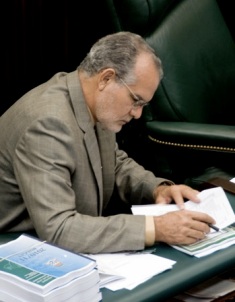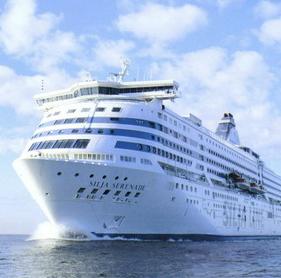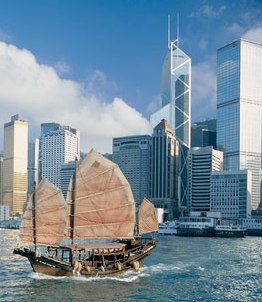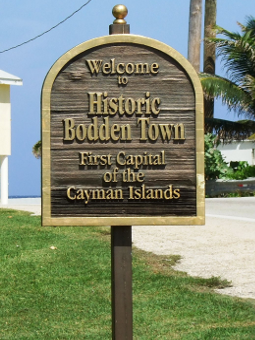Archive for November 8th, 2010

An income or payroll tax is no silver bullet
As the global economic crisis continues to have an increasingly negative impact on the Cayman Islands economy, the debate on why the government has been facing large deficits has led to many suggestions. Cutting expenditure, and privatization are among some of the suggested solutions, but the one that has really caught on is the idea, recently suggested by the FCO, that our crisis relates to the narrow revenue base that Cayman has had for all of its modern history.
More specifically, the idea of an income or payroll tax has not only been suggested but, according to some persons, has even got to the stage where members of the business community support some form of direct taxation (including a payroll tax).
The idea that the revenue base is very narrow is not a recent observation. This has been noted on several occasions over the years, including within the regular economic reviews of the Cayman Islands carried out by various FCO economists over the past decade, in separate analysis carried out as part of a five year economic plan back in 2003 and on other occasions.
What has, however, given importance to the idea of an income or payroll tax is the search for an answer to the question: why are we in this position in the first place?
Some commentators have not been convinced that the global economic recession and poor domestic policies have been the major forces behind the current crisis, but looked for other more fundamental reasons for the Cayman Islands economic and fiscal challenges. One theory is that the existing system of indirect taxation has “caught up” with Cayman and that without the implementation of either a payroll or income tax, the country could not have a “sustainable revenue base”.
Before scrutinising this theory, let’s consider the reasons put forward as to why direct and, in particular, an income or payroll tax may be more sustainable or better for Cayman. These reasons are very well researched in general and have a clear logic, but that does not mean that the theory applies perfectly to the Cayman Islands situation.
As the explanation goes, when an economy suffers a recession and it does not have direct income taxes, it experiences a larger reduction in revenues than it would if it had a system which includes direct income taxes. This is because while the government may lose revenues from indirect taxes and fees (such as import duties) due to less economic activity, it can at least benefit from having a tax on individuals’ incomes even in the economic downturn. In other words, you can still gain revenues from taxing a person’s income in a recession so the direct tax is considered a bit more “sustainable” than the indirect taxes. Another reason for the suggestion is that if the government introduces an income or payroll tax then it would be in a position to reduce some of the existing indirect taxes, thereby reducing the cost of living in the country. That summary somewhat simplifies the main arguments (and space here does not permit discussing the related assumptions), but it should suffice for now.
As the theory continues, we then need to look around us to see that the Cayman Islands is one of only a handful of countries in the world which does not have a direct tax as part of its revenue arsenal. This suggests that somehow as a country our choice of a purely indirect tax system is out of touch with the reality of today’s world and our own needs.
But is it?
Take another look at the vast majority of countries with a direct tax system which relies heavily on income or payroll taxes. Did they handle the global crisis any better than the Cayman Islands because they had an income or payroll tax in place? Are these countries boasting surpluses because their governments had chosen to maintain an income or payroll tax for the past 200 or more years? Have their national debts been contained or even reduced due to the ‘superior sustainability’ of their tax system? The fact is that most of these countries have experienced worse fiscal imbalances in comparison to the Cayman Islands.
To be clear, the main point here is not to pretend that the Cayman Islands does not have its own host of challenges (some of them serious). But if we consider the many examples around us, it starts to become evident that whether a tax system is based solely on indirect taxes or one which also includes income taxes (like most countries) is unlikely to be the primary factor behind the challenges that we face as a country today. It is in fact more likely that regardless of the type of tax system that the Cayman Islands had three, four or even ten years ago, we would still have witnessed a severe economic downturn and large fiscal deficits (like just about every other country with these mixed tax systems).
Let’s imagine a new era where the Cayman Islands has introduced an income or payroll tax. Ask yourself these questions: would having that new system make the government any more accountable in its spending or would it be tempted to “tax and spend” like most other governments? Would having a new income or payroll tax help us to avoid large deficits in a downturn regardless of the level of government expenditure? Would a new income or payroll tax make our revenue base more sustainable if we are now dependent on the salaries earned by a workforce in which the majority of workers are mobile/transient? And if the government cannot rely on those transient workers (those on work permits) to stay put when things go bad, then will it not need to turn to those workers who are not as mobile to secure those income or payroll tax revenues? Finally is it fair or sensible to continue to compare the Cayman Islands to other offshore jurisdictions with an income or payroll tax (for example Bermuda) which do NOT have a disproportionately large percentage of mobile/transient workers in their labour force?
The debate on what we need to do to cut expenditures or raise further revenues is still the right one and all options should be left on the table until they are properly scrutinised. But in the meantime, we could start by examining how to improve our existing system of indirect taxes, by changing the policy environment to diversify or grow the economy, by looking at direct taxes which do not focus on incomes, or finally implementing some of the ideas put forward by civil servants on how to improve efficiencies in their own departments.
The harsh reality is that these alternative approaches involve some very tough decisions for both the government as well as the wider community. The real question is whether we are ready to embrace these decisions today, before it is too late.
But the idea that simply switching to a system of income or payroll taxes would solve our problems because “other countries have it, and we should therefore try it” needs far more scrutiny. We must do this before stepping on the accelerator towards a situation where the Government takes revenues from you depending on how much you earn.
Paul Byles is MD of Focus Consulting. He has an MSc from the London School of Economics (LSE).

Premier appeals to public to help with Tomas aid
 (CNS): Cayman Airways will be sending a charter aircraft on Wednesday with relief supplies to islands in the region affected by Hurricane Tomas. The premier said his office in partnership with the Red Cross was spearheading a drive to gather much-needed supplies. “Having gone through similar experiences with Hurricanes Ivan and Paloma, the people of the Cayman Islands empathise with our friends and family in St. Lucia; St. Vincent and the Grenadines; Barbados; Haiti; and Cuba,” McKeeva Bush said. “We know the challenges and the gargantuan rebuilding effort that they now face.”
(CNS): Cayman Airways will be sending a charter aircraft on Wednesday with relief supplies to islands in the region affected by Hurricane Tomas. The premier said his office in partnership with the Red Cross was spearheading a drive to gather much-needed supplies. “Having gone through similar experiences with Hurricanes Ivan and Paloma, the people of the Cayman Islands empathise with our friends and family in St. Lucia; St. Vincent and the Grenadines; Barbados; Haiti; and Cuba,” McKeeva Bush said. “We know the challenges and the gargantuan rebuilding effort that they now face.”
Reports have revealed that in St. Lucia, one of the first places hit by Tomas, 14 lives were lost and several others are still missing. Estimates are that rebuilding will cost $500 million, and that it will be a year before reconstruction in some of the hardest hit areas of his island will be completed.
The premier pointed to those in Haiti, who were already struggling to survive following January’s epic earthquake and the recent cholera outbreak, now face the added misery that Tomas’ flood waters brought this past weekend.
“As these countries complete their damage assessments, we know their need for regional and international assistance will only increase. Consequently, the Cayman Islands Government is doing our part to assist our Caribbean neighbours,” Bush added.
.
Calling on the community for help he appealed to residents and corporate citizens in the private sector for assistance. “Working in close partnership with the Red Cross, we have a goal to collect the following items by close of business on Tuesday, 9 November,” he said as he listed the items needed. “Many in the region rallied to Cayman’s aid during our time of need in the months following Ivan and Paloma. Now, it’s our chance to return good for good.”
The items include cases of water; water purification tablets; dry, preserved and canned food (especially evaporated milk); blankets, sleeping bags and bedding (sheets, comforters, etc.); lanterns and flashlights, with the right-sized batteries; small transistor radios; adult and infant disposable diapers and wipes; female sanitary products; baby food and formula; cleaning supplies (including sanitary wipes, hand sanitizer), etc.; and water containers and flasks.
These items can be dropped off at the Red Cross, on Huldah Avenue or Cayman Airways Cargo facility on Airport Road.
The Cayman Islands Red Cross is also accepting cash donations. Contributions may be deposited in the following Bank of Butterfield accounts: KYD 02-201-035054-05 and USD 01-201-035054-02. For more information, call Red Cross Disaster Manager Hemant Balgobin on 925-0681 or email him at hbalgobin@gmail.com

Review reveals $17M in cuts
 (CNS): The first phase of the government’s review of four public sector entities has identified potential savings of $17 million in spending and over $15 million has been approved by Cabinet. The deputy governor revealed that, following an assessment of the prison service, tourism, CINICO and public works — some of the highest spending agencies — the review team found savings in each of them equal to 21% of the total budget of $72 million currently allocated to the four entities. The review recommends some radical cuts in head counts and changes to services in all four departments.
(CNS): The first phase of the government’s review of four public sector entities has identified potential savings of $17 million in spending and over $15 million has been approved by Cabinet. The deputy governor revealed that, following an assessment of the prison service, tourism, CINICO and public works — some of the highest spending agencies — the review team found savings in each of them equal to 21% of the total budget of $72 million currently allocated to the four entities. The review recommends some radical cuts in head counts and changes to services in all four departments.
These cost savings will be realized over the next 12-36 months, Donovan Ebanks told the Legislative Assembly on Monday morning as he outlined the process of the review, which was initiated as a result of the agreement with the UK over the extension to the country’s borrowing parameters under the PMFL. The Cayman government is committed to realizing significant cuts over the next three years in order to eliminate the deficit and reduce borrowing.
Following the success of the first phase of the review, Ebanks said, government was now moving on to the second which will examine another eight agencies and hope to identify similar percentage savings. Ebanks said the results of the review sent a clear message regarding government’s commitment to reining in expenditure.
“To realize $15.2 million in savings from only four of government’s 62 public sector entities is a significant achievement," Ebanks said. "Those sceptics who condemned the approach and affixed to it labels such as ‘the fox guarding the hen house’ will not be as critical going forward when they realize that the approach has yielded accepted recommendations for 21%,” he stated.
Ebanks said the reviews had been conducted by teams of the brightest up and coming civil servants with assistance from the private sector. Ebanks said spending money commissioning an outside agency to conduct the review would have been rather ironic given the goal of the project is to cut government expenses. Now that such significant savings had been identified, he said, the service was committed to making the necessary changes.
“The public should know that Cabinet is fully committed to ensuring that these recommendations are implemented,” the deputy governor stated. “The Cabinet has appointed a monitoring mechanism to ensure that recommendations are not given lip service but instead are carried out as quickly and efficiently as possible and that it is kept regularly appraised of progress.”
He explained that the next phase, which will finish in December, will review the airports authority the port authority, children and family services, computer services, customs, education services, fire services and the RCIPS.
According to the report, which was laid on the table of the Legislative Assembly by the deputy governor making it a public document, the first phase has recommended some radical changes and cuts in order to realize the savings.
In the prison service the review has recommended closing the women’s prison at Fairbanks, have prisoners contribute to their own health care costs, sending high risk prisoners overseas, privatising prison escort and removing the prison officers’ housing allowances. Altogether more than $4 million dollars of cuts was identified in the service.
Meanwhile, in the Department of Tourism the review team recommended that it transfer a number of its jobs to other departments, such as scholarships to the Education Council, accommodation inspections to the Department of Environmental Health andthe analysis of tourism statistics to the Economics and Statistics Office, to allow it to concentrate on its core activity of promoting the Cayman Islands. It also recommends that the DoT stop sponsoring events such as the Jazz Fest. The review identified a $3.5 million of possible savings for the department.
Cost cutting at public works will be down to head count reductions and by privatisation of many of the services it currently provides, amounting to over $2.2 million in savings. However, the review team warned that with the current unemployment levels, care needed to be taking when reducing jobs that government did not shift salary costs to social costs.
At CINICO, the government’s health insurance company, the review team recommended that government reconsider the health benefits given to future civil servants, review of existing policies and that the body needed a redesign of its business strategy and claimed it could realize as much as $7.2million.

Cruise port not settled
 (CNS): The premier told the Legislative Assembly Monday that government, the port authority and the developer DECCO are all still negotiating the details of the proposed development of cruise berthing facilities in George Town. While answering a number of questions from the opposition member for East End, McKeeva Bush said that such negotiations were always difficult, especially as the public were saying one thing, the developer wanting another thing and the government something else. The premier said the current negotiations were focused on the length of the lease the developer would get on the land which would be reclaimed as part of the project.
(CNS): The premier told the Legislative Assembly Monday that government, the port authority and the developer DECCO are all still negotiating the details of the proposed development of cruise berthing facilities in George Town. While answering a number of questions from the opposition member for East End, McKeeva Bush said that such negotiations were always difficult, especially as the public were saying one thing, the developer wanting another thing and the government something else. The premier said the current negotiations were focused on the length of the lease the developer would get on the land which would be reclaimed as part of the project.
Bush said under the agreement signed in September, the lease could be up to 99 years but how long it would actually be was the issue in question. “The range which is provided for in the framework agreement is a long term lease and the definition of long term is between 21 and 99 years. The reason for that range is because until all the revenue, cost and risk analysis has been completed it is not possible to determine the period of time necessary for the financial viability of the project.”
The premier stated that the negotiations were highly sensitive and still ongoing. “Obviously the developer will want as long a lease as possible and the government is working to get as short a lease as possible.”
He said the period of the framework agreement between the public authorities and Dart’s general contracting company was for four months with room for a two month extension if needed and Bush said he was hoping some agreement would be arrived at before the end of this year. He confirmed that the developer has estimated the project will take between 18-24 months to complete once work is underway.
Asked by Arden McLean if there had been any concerns raised by the Foreign and Commonwealth Office in the UK, about any aspects of the project, the premier said he was not aware of any and if the member knew anything about that he should let him know.
The government is hoping that it can come to a favourable agreement where DECCO finances and constructs two finger piers in George Town and the associated upland facilities. The developer will recoup his investment partially through fees from the cruise lines and partially through the revenue earned from the potential landside facilities ona long term lease. Once that lease is up the facilities will revert into the hands of government.
The development of the facilities will include reclamation of land for both the piers and the upland element of the project and will also require redevelopment of the downtown George Town area. There have been concerns in a number of quarters that the development could impact the quality of Seven Mile Beach and may have a detrimental impact on Cayman’s overnight tourism product.
However, according to government Cayman must develop these facilities in order to hang on to its share of the cruise business. The need for cruise berthing facilities it says has been further compounded by the arrival of a new class of mega cruise ships that the cruise lines have sated will not call at ports without berthing facilities.
With no money to fund the development of piers the government sought proposals from the private sector and selected DECCO (part of the Dart Group, the developers of Camana Bay) because as well as being able to design an construct the facility the company was also in a position to finance the project.
Government signed an MOU with Dart in April and then a framework agreement in September. Although it was announced that an environmental Impact Assessment would be started after the MOU was signed so far it has not been confirmed if the report has been completed or when it will be made public.

Fat kids eat healthier food than skinny kids, says study
 (Daily Telegraph): Overweight children often eat more healthily than their thinner classmates, according to research suggesting that a lack of exercise, rather than a junk food diet, may be to blame for obesity. A study of 900 primary school pupils in Norway found that fat children ate healthy foods – such as fruit, vegetables, fish, and brown bread, as well as low-calorie cheese and yoghurt – more frequently than their normal-weight peers. The research suggested that a good diet without exercise would not be enough to prevent weight gain. It follows research published in September that suggested that diet had the greatest influence on weight.
(Daily Telegraph): Overweight children often eat more healthily than their thinner classmates, according to research suggesting that a lack of exercise, rather than a junk food diet, may be to blame for obesity. A study of 900 primary school pupils in Norway found that fat children ate healthy foods – such as fruit, vegetables, fish, and brown bread, as well as low-calorie cheese and yoghurt – more frequently than their normal-weight peers. The research suggested that a good diet without exercise would not be enough to prevent weight gain. It follows research published in September that suggested that diet had the greatest influence on weight.
The findings, in a study by Telemark University College and the Norwegian Institute of Public Health, represent the latest contribution to the debate over whether diet or exercise is more important in combating obesity. Academics monitored the weight, exercise levels and eating habits of 924 children aged nine and 10 and questioned their parents about their own lifestyles. The children were asked how often they had eaten a variety of foods, both for main meals and snacks.

Hong Kong bids to be global finance hub
 (AFP): Hong Kong launched a campaign Monday to promote itself as a global financial hub and rejected suggestions that it was trying to counter growing competition from Shanghai. The three-million-Hong Kong dollar (US$387,000) first phase of the campaign will see officials travel to cities including London and New York to promote Hong Kong. "Hong Kong has a unique position. This is where both the China opportunities and global opportunities converge, we have both advantages," K.C. Chan, the Hong Kong government’s secretary for financial services and the treasury, told a news conference.
(AFP): Hong Kong launched a campaign Monday to promote itself as a global financial hub and rejected suggestions that it was trying to counter growing competition from Shanghai. The three-million-Hong Kong dollar (US$387,000) first phase of the campaign will see officials travel to cities including London and New York to promote Hong Kong. "Hong Kong has a unique position. This is where both the China opportunities and global opportunities converge, we have both advantages," K.C. Chan, the Hong Kong government’s secretary for financial services and the treasury, told a news conference.
Hong Kong has been trying to establish itself as an offshore trading centre for the yuan, China’s currency. The city is expected to draw as much as 14.7 billion US dollars’ worth of yuan-denominated bank deposits this year.

No elections for new councils
 (CNS): The district councils which have been outlined in the Cayman Islands Constitution will not be elected bodies but the members will be selected by Cabinet. According to the law, which will come before legislatures during this current sitting, the new local political bodies designed to advise the relevant elected members of the Legislative Assembly for the districts will all be appointed by government. Of the maximum of ten councillors only two have to be recommended by the opposition in each district, unless there is no government member in the constituency when Cabinet will only be able to appoint three members. (Photo by Lisa Butcher)
(CNS): The district councils which have been outlined in the Cayman Islands Constitution will not be elected bodies but the members will be selected by Cabinet. According to the law, which will come before legislatures during this current sitting, the new local political bodies designed to advise the relevant elected members of the Legislative Assembly for the districts will all be appointed by government. Of the maximum of ten councillors only two have to be recommended by the opposition in each district, unless there is no government member in the constituency when Cabinet will only be able to appoint three members. (Photo by Lisa Butcher)
The members will have to live in the district and, according to the proposed legislation, will have “special qualifications, training, experience or knowledge of the district” suitable to the role.
There is no provision in the law for the new district councillors to be elected by the people of the district. So far, the only district in which such an advisory body already exists is North Side, where the independent member, Ezzard Miller, held public ballots at district meetings to elect the council. So far that body has undertaken a number of projects, including raising the money to install a network of close circuit television cameras to help fight crime in the community.
Miller meets regularly with his council to discuss the motions and questions he intends to bring to parliament, as well as what position he should take on government legislation and policies on behalf of the people of the district.
Under the proposed law, which will introduce councils in all six electoral districts, the members will be appointed for one year but can be reappointed after that, and the terms and conditions of service will be determined by the government.
The main role of the members will be to advise their MLAs on the major issues with regards to the district’s needs and to help their elected representatives discharge their duties towards their constituents more efficiently and effectively. The MLAs will then take the advice of their councils to the relevant ministers when necessary.
The district councils will receive some funding through the budgetbut they will also be able to raise their own cash for specific projects. The councils will be expected to meet a minimum of four times per year in public, though the chair will have the power to call for in camera sessions.